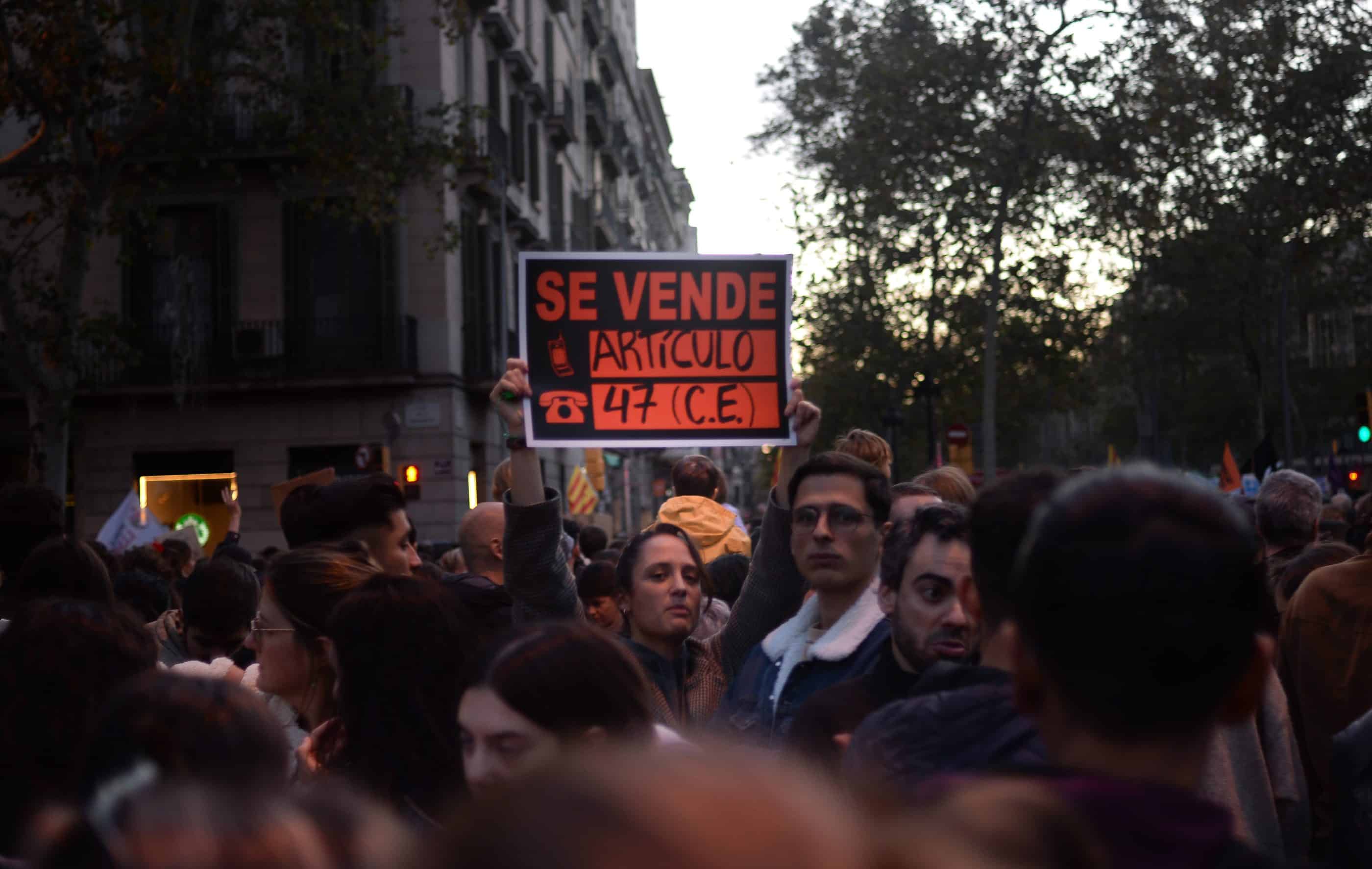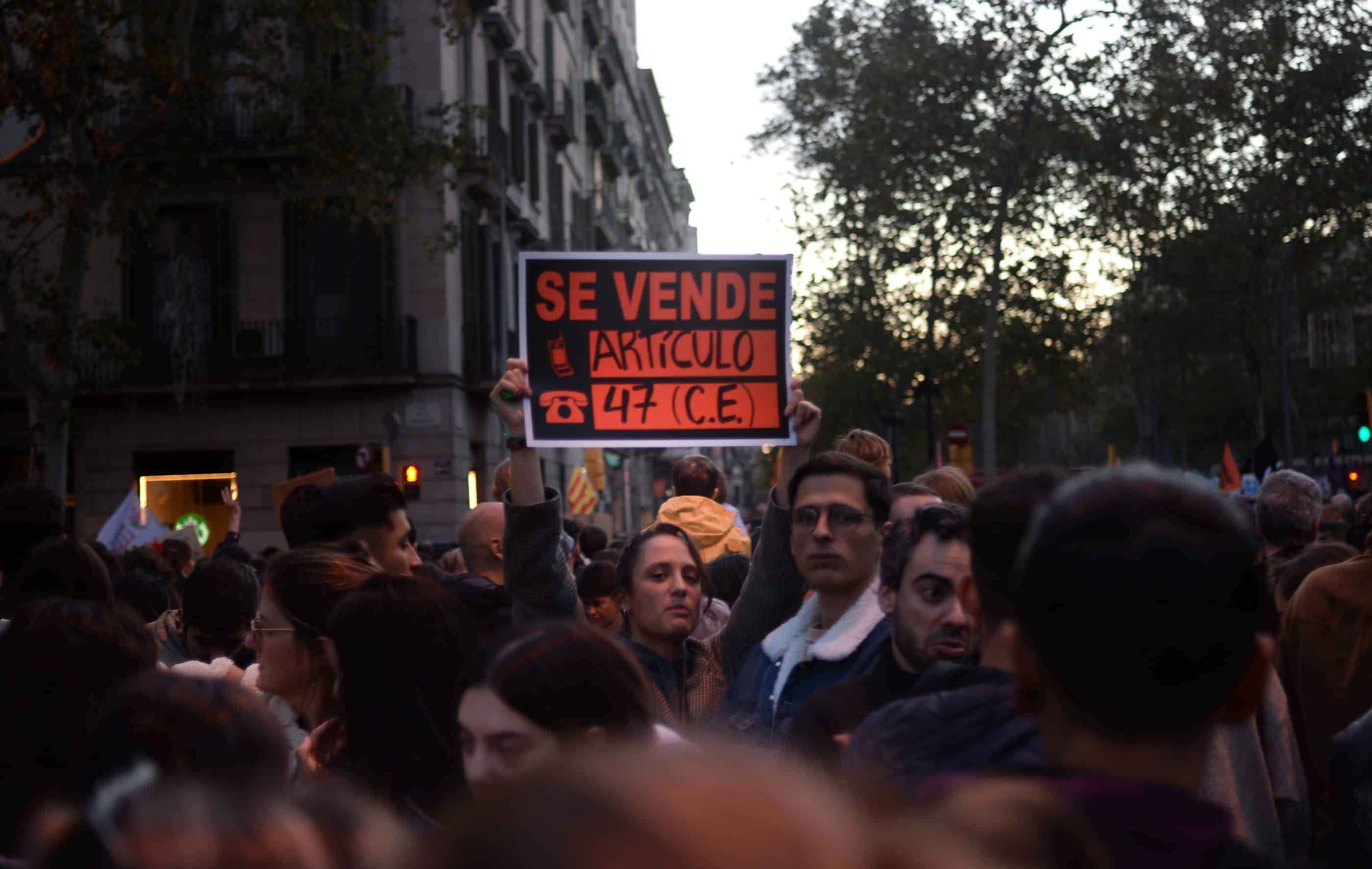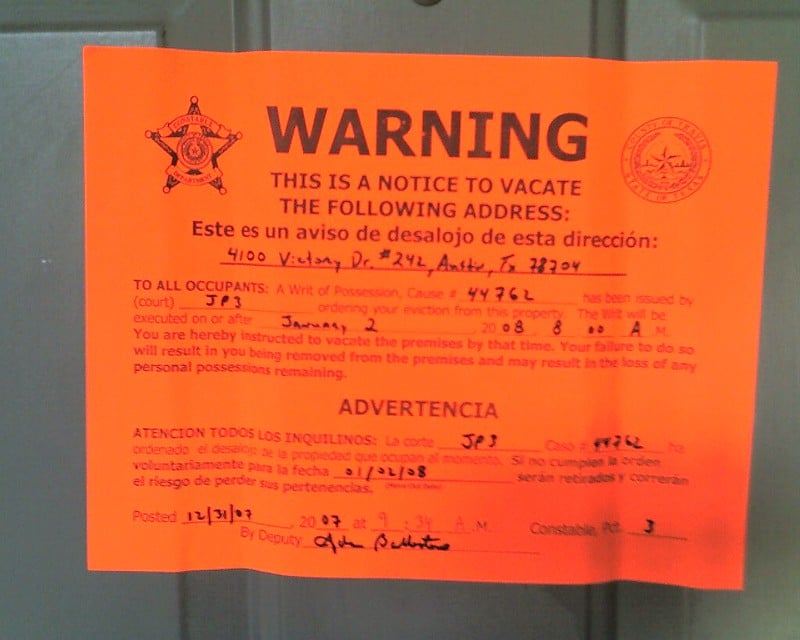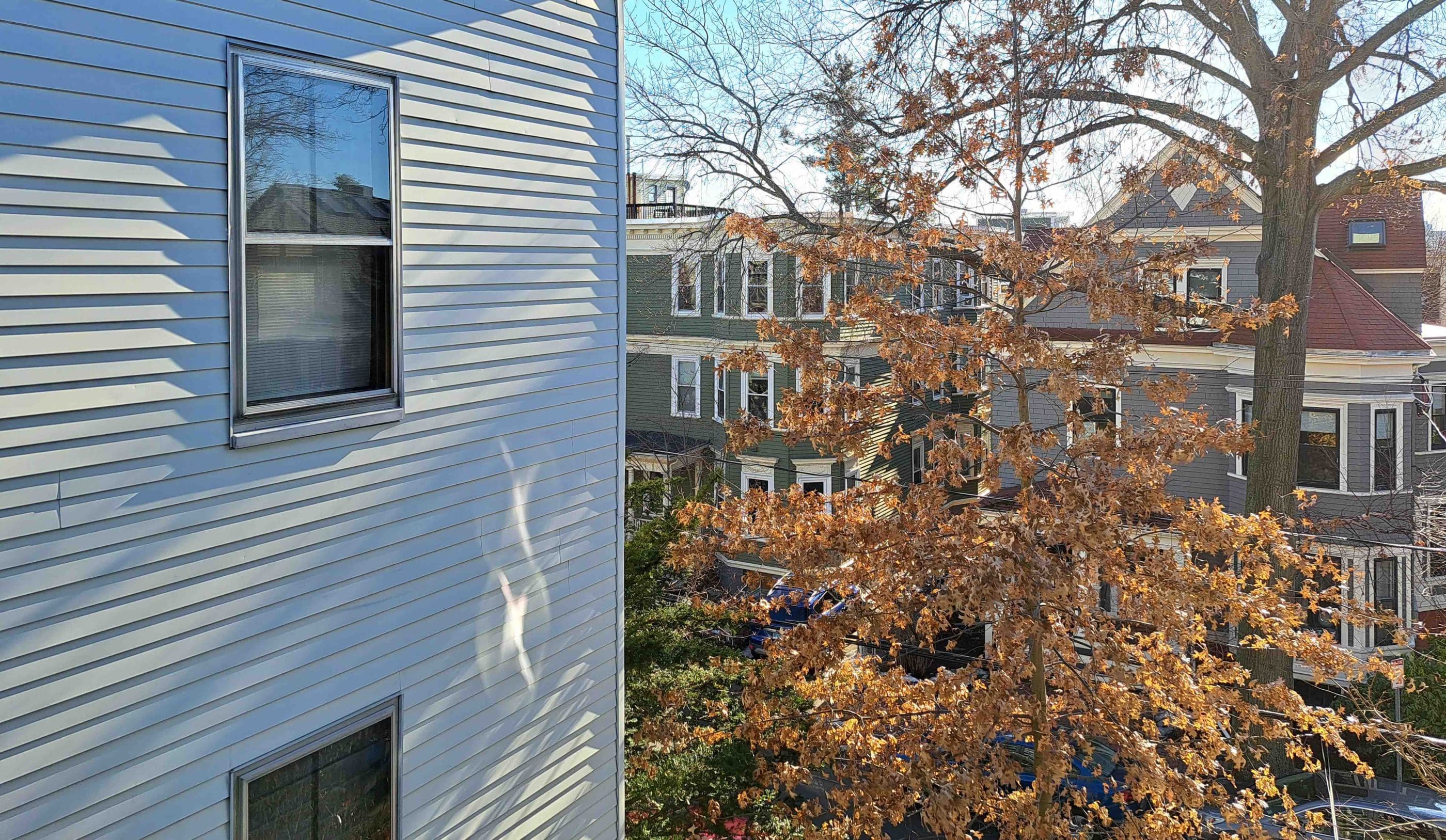One year ago, Catalunya became the first and only region in Spain to respond to its rental crisis with rent control measures. Since then, average rents in the region have dropped slightly. But listings on popular online rental platforms have soared in cost, and short-term leases—a way for landlords to get around the law—have spiked.
Under the law, new rents in high-cost areas must remain under an official price index when the property owner is a large landholder, and landlords can’t raise rents between tenants. But following the law’s passage, a lack of transparency and enforcement of the measures impeded the public from exercising their rights.
In November, Barcelona renters, fed up with the lack of progress, participated in a massive protest organized by the Sindicat de Llogateres i Llogaters (Tenants Union). The Sindicat counted 170,000 participants (numbers reported vary).
Since then, there have been a series of proposed and approved measures at the municipal, regional, and national levels that build on the current rent control legislation. These include a proposal to tax foreign investors, a new registry for seasonal rentals, and fines for noncompliance with the rent control law.

At the end of January, the regional government approved fines for landlords who violate the law. It is also now possible to report noncompliance on the regional government’s official website, a deterrent for landlords who don’t provide the information they’re required to include in their leases (including the previous rent of the unit.)
Official data from the Catalan regional government published in December 2024 shows modest declines in rental prices year-over-year—a 1.1 percent average drop across all regulated areas and a 3.2 percent drop in Barcelona. At the same time, the number of new leases has decreased. This suggests that the law has helped renters gain some ground, and that many landlords opted to renew their tenants’ leases instead of terminating them and hiking rents.
However, popular rental platforms like Idealista and Fotocasa report that listing prices spiked in 2024. On Idealista, listing prices increased by 12 percent in Catalunya, with a 14 percent spike in Barcelona. This is in part due to the rise of short-term rentals.
Before the law passed, the Sindicat pushed unsuccessfully to make the rules apply to short-term rentals. Without that safeguard, according to data from the Catalan Land Institute, these rentals increased by 37.5 percent between Q3 2023 and 2024. Tenants looking for a home in Barcelona and other stressed zones will find that many listings are only available for 11 months or less at exorbitant prices set with affluent digital nomads in mind.
The story of Casa Orsola epitomizes the harm caused by short-term leases. In 2021, the investment fund Lioness Inversiones purchased the picturesque building in the sought-after Eixample neighborhood of Barcelona and stopped renewing the residents’ leases. The seven apartments of those that left quietly were subsequently converted into temporary leases. According to Enric Aragonès, spokesperson for the Barcelona chapter of the Sindicat, apartments where tenants previously paid 700-900 euros per month before the purchase were listed for 2100-2800 euros.
Over the following four years, many residents of Casa Orsola, working with the Sindicat, refused to leave their homes. Lioness Inversiones initiated eviction proceedings. Casa Orsola became a rallying cry, symbolizing broader concerns over speculative practices and the danger of unregulated temporary leases. It drew considerable attention, including from stars at the Gaudí Awards, Catalunya’s annual film awards.
At the end of January, a crowd of 800+ protestors gathered outside the apartment building to block police from removing Josep Torrent, the first resident slated for eviction after two years of fighting the decision in the courts. Some stayed until morning to ensure officials didn’t try anything in the middle of the night.
After several tense days and swarms of media, the residents won a major victory. In February, Lioness Inversiones sold the building to the city government. The current tenants can stay.
Aragonès says that Casa Orsola is “a call to everyone to do what the tenants there have done. If they want to kick you out of your home, don’t leave. Join forces with your neighbors and don’t let it go unnoticed.”
Even a perfect housing law, were such a thing to exist, would be worthless if not enforced. When authorities dropped the ball, an army of renters, organized by a strong tenants union, held them accountable in the streets of Barcelona. After all, it’s not just long-term rentals in Eixample that are on the line. The promise of rent control itself has the chance to prove itself once and for all. If it can work in Catalunya, it can work in the rest of Spain and beyond.
Editor’s Note: This article has been updated to specify that the rent control law applies to new rents for large landholders.





Comments